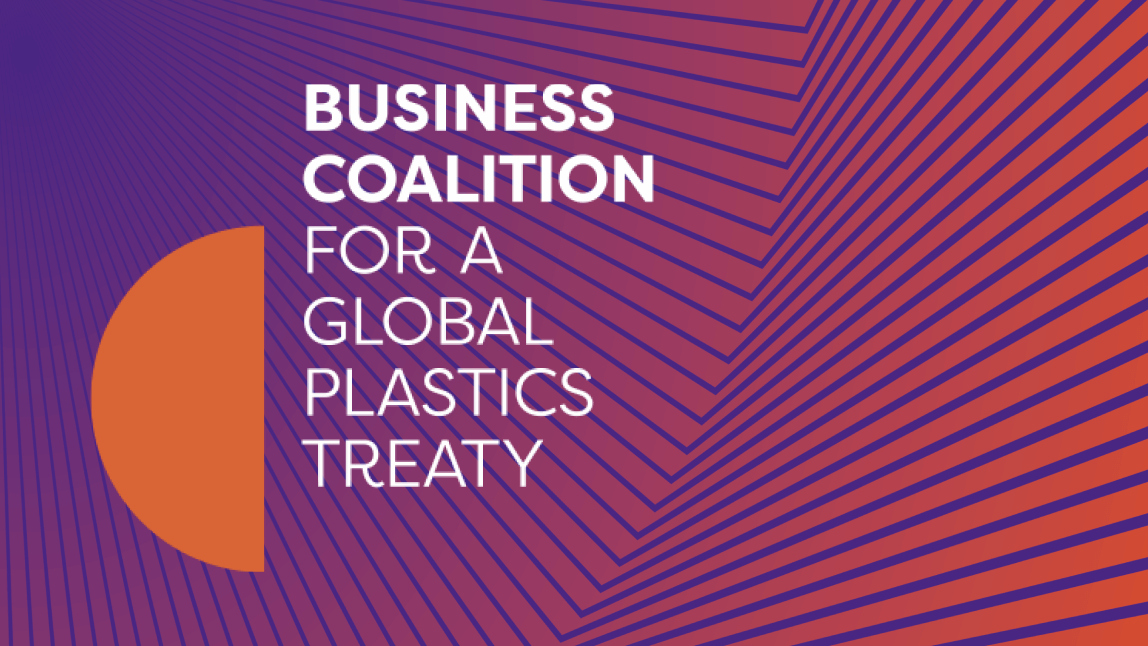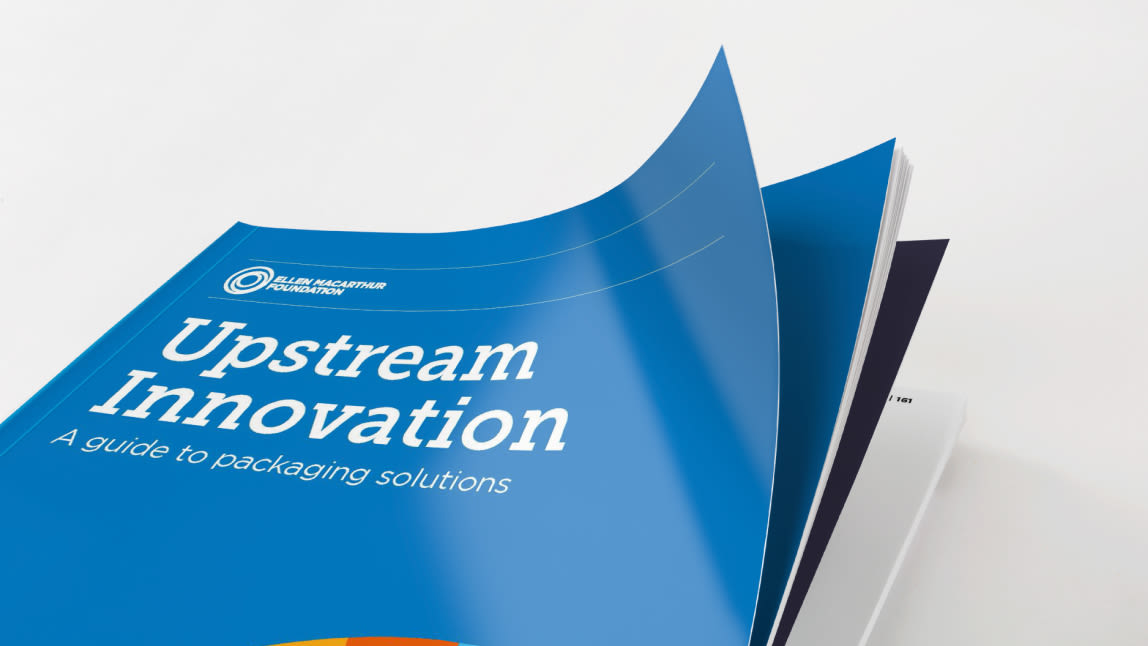Today, 85 businesses across the plastics value chain, financial institutions, and non-governmental organisations (NGOs) announced plans to form a Business Coalition for a Global Plastics Treaty.
The development of a legally binding UN treaty is a once-in-a-generation opportunity to tackle the plastic pollution crisis in a globally coordinated way. The coalition, convened by the Ellen MacArthur Foundation and WWF, in collaboration with aligned businesses and supported by strategic NGO partners, sees the treaty as the single most important opportunity to accelerate progress towards a circular economy in which plastic never becomes waste or pollution, and the value of products and materials is retained in the economy.
To achieve this vision of a circular economy for plastics, the coalition believes that progress must be achieved in three critical areas:
REDUCTION of plastic production and use through a circular economy approach, focusing on those plastics that have high-leakage rates, are short-lived, and/or are made using fossil-based virgin resources.
CIRCULATION of all plastic items that cannot be eliminated, keeping them in the economy at their highest value.
PREVENTION and REMEDIATION of remaining, hard-to-abate micro- and macro-plastic leakage into the environment.
The coalition will develop ambitious policy recommendations, aligned with this vision, engage with treaty negotiators, and build confidence in the business community on the benefits and necessity of an effective treaty that sets common goals, rules, and obligations to be implemented in national jurisdictions. To create a level playing field and prevent a patchwork of disconnected solutions, the treaty must define a comprehensive and coordinated set of upstream and downstream policy measures that help achieve our desired global outcomes and are adaptable to local conditions.
Ahead of the first Intergovernmental Negotiation Committee (INC) meeting scheduled for the end of November, the Foundation and WWF, together with aligned businesses, call for:
governments and negotiators to develop an ambitious and effective treaty that urgently accelerates the transition to a circular economy in which plastic never becomes waste or pollution, and the value of products and materials is retained in the economy.
more businesses from across the plastic value chain to join our coalition - including business associations and financial institutions, and key non-governmental organisations (NGOs) working with business on environmental issues.
governments and businesses to take immediate action on plastic pollution where possible, while the treaty is being negotiated.
The treaty negotiation process, which is expected to conclude at the end of 2024, will largely determine the trajectory of the plastic pollution crisis for generations to come. Together, we can amplify our call for a legally binding effective treaty to end plastic pollution.
“The plastic crisis extends beyond all borders, impacting the health of our oceans and wildlife, and the livelihoods of people from major cities to small coastal communities. The scope and scale of this global issue must be met with equally ambitious solutions. We have no time to waste. The need for global coordination to tackle the plastic pollution crisis has never been more urgent, a Business Coalition for a Global Plastics Treatywill push strongly for a framework that leaves the business-as-usual approach at the door and ushers us into a new era where ending plastic pollution is finally within reach.”
- Erin Simon, Vice President and Head of Plastic Waste and Business, WWF
“Many companies and countries are already taking important steps to address plastic pollution, but voluntary action alone cannot reach the scale we need to urgently solve this crisis. An ambitious global plastics treaty is required. That is why today we are announcing, in partnership with WWF, plans to form a Business Coalition for a Global Plastics Treaty. This coalition will bring together businesses from across the plastics value chain to support the development of an ambitious and effective treaty – one that accelerates the transition to a circular economy and ensures the value of products and materials is not lost but retained. Plastic can no longer be allowed to become waste or pollution.”
- Rob Opsomer, Executive Lead - Systemic Initiatives, Ellen MacArthur Foundation.










